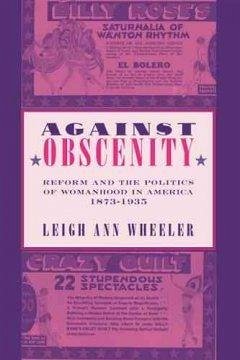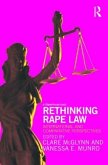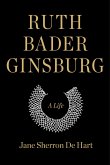In the tumultuous early decades of the twentieth century, women reformers provoked tremendous political and cultural change. Temperance activists succeeded in enacting Prohibition and then saw it repealed. Welfare reformers built and then dismantled the Children's Bureau. Suffragists cheered their momentous victory and then quarreled over its meaning. This period also saw the emergence of an increasingly sexualized popular culture comprised of burlesque shows, risque vaudeville acts, and indecent moving pictures. Politically active middle- and upper-class women began mobilizing against these lewd public amusements, challenging the male-led organizations that had for several decades defined and regulated obscenity. By the 1930s, women leaders of the anti-obscenity movement enjoyed the support of millions of American women and were courted by presidents, congressmen, and Hollywood moguls. Yet today their influence has been all but forgotten. In Against Obscenity, Leigh Ann Wheeler restores female anti-obscenity activists to their rightful place in twentieth-century women's history, uncovering a fascinating and largely untold aspect of the Progressive Era. At the center of Wheeler's study stands Catheryne Cooke Gilman, an indomitable woman who led the anti-obscenity movement in her native Minneapolis, as well as national grassroots organizations. Through the activities of Gilman and her fellow reformers, Wheeler explains how the rise and fall of women's anti-obscenity leadership shaped American attitudes toward and regulation of sexually explicit material even as it charted a new era in women's politics. She also addresses the passionate disagreements between and among various reform organizations over these issues (and the interesting reasons for the divisions)--whether or not to ban a touring stage show, for example, or close a local burlesque theater, disseminate explicit sex education pamphlets, or create a federal agency to regulate Hollywood films. Today's efforts to protect children from sexual imagery on television and the Internet echo the concerns of this earlier generation of reformers, as do feminist battles over pornography. By recovering the voices of earlier activists--their concerns and conflicts, victories and failures--Against Obscenity offers a fresh perspective on contemporary discussions concerning freedom of expression and the moral supervision of American entertainment.








